Great novels rarely make great movies, but for half a century one director has been showing all the others how it’s done. James Ivory has worked his magic on all sorts of authors, from Kazuo Ishiguro to Henry James, and this week the finest of all his adaptations returns to the big screen. ‘A film that’s almost two and a half hours long, non-stop talking, set in the Edwardian era — who would have thought that would be such a huge success?’ says Ivory, on the phone from his home in upstate New York. Yet somehow, this taciturn director turned a wordy novel by E.M. Forster into a gripping drama. How did he do it? By creating the ideal setting, meticulous in every detail, then stepping back and giving his creative colleagues room to breathe.
Howards End is an object lesson in directing without vanity. Ivory’s artistry is invisible — he casts his spells behind the scenes. He gives his actors time and space to get inside their characters. You’re absorbed by them because you believe in them, and because you believe in them, you care about them, even when they’re just sitting around in stuffy drawing rooms, writing letters and drinking tea. Emma Thompson won an Oscar, a Bafta and a Golden Globe for her performance as Margaret Schlegel, a decent woman torn between idealism and bourgeois respectability, but she could have shared these prizes with several of her co-stars. Like all the best conductors, Ivory allows his soloists to shine. ‘Filmmaking is like making music, it’s a collaborative effort — a lot of people have a lot to say when you’re making a movie, and you’ve got to listen to them,’ he says. ‘You have to do what’s good for the film. You have to put ego aside.’
Howards End may be remembered as Ivory’s greatest movie, but his ability to tease out great performances is by no means confined to just one film. Lee Remick was never better than in The Europeans; Christopher Reeve was never better than in The Bostonians. Ivory treats his actors as equals, and from Greta Scacchi in Heat and Dust to Helena Bonham Carter in A Room with a View, his stars have always risen to the occasion. Has Hugh Grant ever surpassed his role in Maurice? Has Anthony Hopkins ever surpassed his role in The Remains of The Day?
So what makes Ivory such a master filmmaker? Sure, he’s a talented auteur; but above all, it’s because he’s a superb team player — for 44 years, the quieter half of the film industry’s leading duo.
James Ivory was born in California in 1928, raised in Oregon, and studied filmmaking at the University of Southern California. In 1959, he met the Indian film producer Ismail Merchant, who became his companion and artistic partner. ‘He wanted to make films with good stories — well-written, well-acted stories that made sense and were truthful and civilised,’ says Ivory. In 1961 they formed Merchant Ivory Productions and for the next 44 years they were inseparable, making dozens of films together. Critical acclaim arrived early, but they had to wait a long time for their first blockbuster. ‘We’d been making films for 20 years before we had a really huge hit.’
They made their first four films in India before relocating to America, and India remained a part of them, throughout their joint career. ‘Wherever he was and whatever he did, there was India — he was India,’ says Ivory, of his soulmate. ‘His Indian-ness was part of everything he did.’ Their lifelong bond was broken only by Merchant’s death, from an abdominal ulcer, aged 68. Otherwise they’d surely still be making movies together. Since Merchant died, in 2005, Ivory has made a few more films but, both professionally and personally, his relationship with his beloved Ismail was clearly the fulcrum of his life. ‘He really was fearless,’ remembers Ivory. ‘He had tremendous drive and enthusiasm and optimism, and endless physical energy.’
From the 1960s to the 1990s, Merchant Ivory was a synonym for sophisticated cinema — intelligent, sensitive stories, in foreign or period settings, often adapted from classic fiction and always immaculately told. They could be radical and daring (Maurice was a trailblazer for gay cinema), but in an era of sexploitation flicks and shoot ’em ups, the brand was a badge of quality, a guarantee to moviegoers that they were in safe hands.
Their personalities were perfectly attuned, in private and in public. Ivory was (mostly) reserved while Merchant was ebullient. His powers of persuasion were legendary, but he was charming rather than bludgeoning. ‘It made all the difference in the world.’ Big stars were keen to work for them, even for smaller fees — they knew the budgets would be modest, but that production standards would be first rate. Backers were delighted to support intellectual films that actually made a profit: A Room with a View cost less than $4 million and took more than $70 million at the box office. ‘At that point the studios came to us, thinking we had some secret, that we could make these films for very little money which would then make a lot of money for everybody and get rave reviews.’ After half a lifetime together, their partnership had become instinctive. ‘Ismail and I didn’t need to talk. Somehow, we were just like one machine, moving forward. I trusted him utterly and he trusted me, and I think we never let each other down.’
Yet despite the cinematic finesse, Ivory has never been afraid to fight his corner. In James Ivory in Conversation: How Merchant Ivory Makes Its Movies (published by the University of California Press in 2005) he described uber-producer Harvey Weinstein as ‘a large, restless and ambitious man, unlovely in manner and speech, possessing no artistic talent of any kind’ (it could almost be a put-down from one of his Henry James adaptations). Of course the Miramax co-founder is distinguished by the stature of his foes, but most directors lack the balls to bell the cat. Not Ivory. ‘All he has is money and the power that gives him,’ claimed Ivory, in that book. He also took a stylish swipe at British film director Alan Parker, who once said Merchant Ivory hailed from the ‘Laura Ashley school of film-making’. ‘His joke will be remembered long after Parker’s own films are forgotten,’ quipped Ivory (actually, for those of us who remember Laura Ashley’s elegant furnishings with much fondness, it wasn’t quite so much of an insult as one might suppose).
Cinephiles thought of Merchant Ivory as a duo, but they were actually part of a trio. The novelist Ruth Prawer Jhabvala provided the backbone of their work, writing the scripts for 23 of their movies, from the screenplays of her own novels, The Householder and Heat and Dust (which won the Booker Prize) to her Oscar-winning adaptations of A Room with a View and Howards End.
‘What made her such a good scriptwriter all along was that she was a very, very good novelist,’ says Ivory. ‘Usually film directors don’t have the luck and the opportunity to work with a first-class fiction writer.’ Her death, in 2013, left Ivory the last one standing, and marked the passing of an age. In today’s fragmented culture, where relationships are so fleeting, it’s hard to imagine a director, producer and screenwriter working together so happily and productively for more than 40 years. ‘We all knew each other very well — the longer we worked together, the better we got,’ he recalls. ‘We were all very close. We had different apartments in the same building, and we were constantly meeting and talking. We were like a family.’
Jhabvala also turned him on to Henry James. ‘He’s an author who’s made for you!’ she told him. ‘You would love his books!’ She gave him a copy of The Europeans, the film of which became Merchant Ivory’s first commercial hit in 1979. ‘She knew my strengths and she also knew my weaknesses,’ says Ivory, of this multifaceted, multinational writer. And without her, there might have been no film of Howards End. ‘That’s the mountain you want to try and climb,’ she told Ivory, after he’d filmed A Room with a View and Maurice. Ivory reread the book and decided to proceed, and although he’s made many other fine films, before and since, his canon would be incomplete without it. Indeed, the most famous lines in this book could be a manifesto for his film-making: ‘Only connect! Only connect the prose and the passion, and both will be exalted, and human love will be seen at its height.’
Got something to add? Join the discussion and comment below.
Get 10 issues for just $10
Subscribe to The Spectator Australia today for the next 10 magazine issues, plus full online access, for just $10.
You might disagree with half of it, but you’ll enjoy reading all of it. Try your first month for free, then just $2 a week for the remainder of your first year.

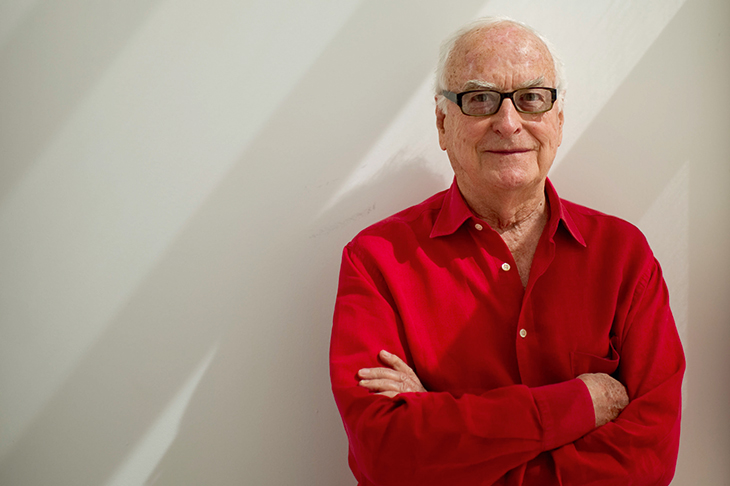

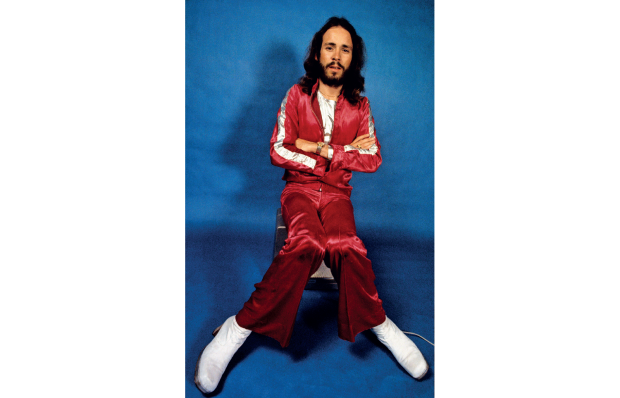
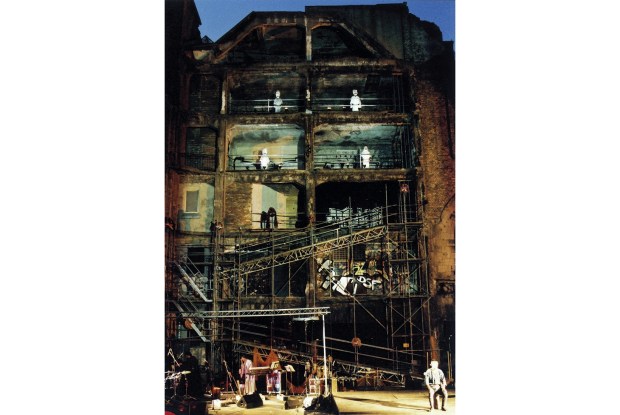
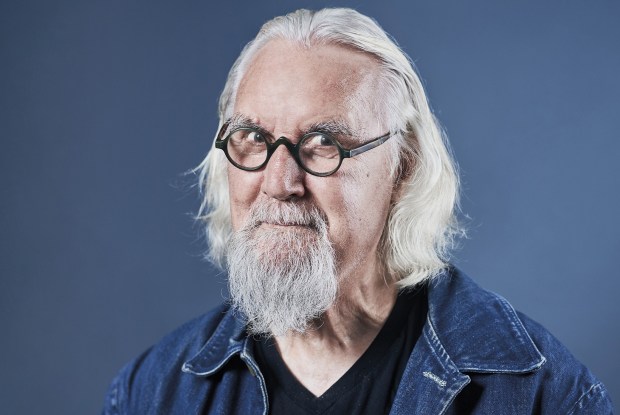
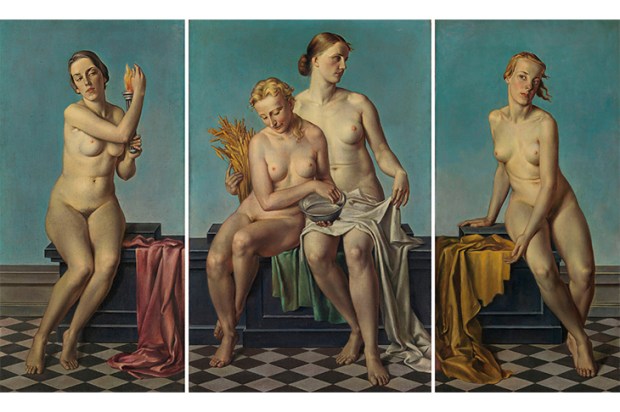
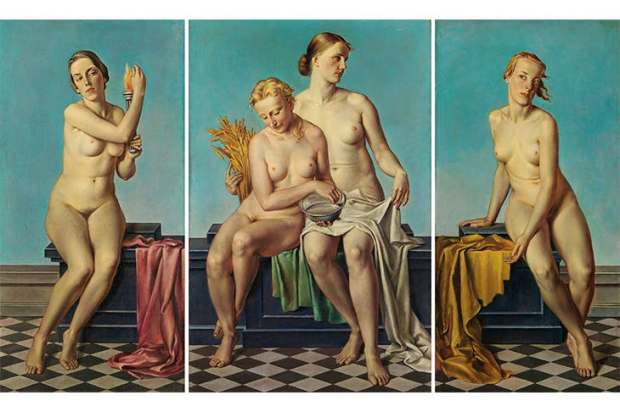






Comments
Don't miss out
Join the conversation with other Spectator Australia readers. Subscribe to leave a comment.
SUBSCRIBEAlready a subscriber? Log in